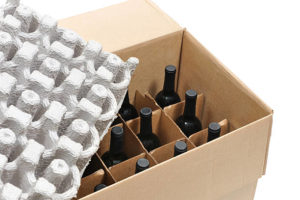There could well be a silver lining in the number of states that have stepped up enforcement of direct to consumer (DTC) shipping regulations. It’s the idea, say analysts and attorneys, that DTC is now mainstream enough to warrant a closer look, just like underage drinking and dram laws.
“They’re beginning to treat DTC as they would any other licensee,” says Alex Koral, regulatory general counsel for ShipCompliant by Sovos, which offers cloud-based three-tier and DTC software. “It’s becoming a normal market, with normal consequences, and the states want to make sure the rules are followed and everyone is doing it properly.”

In this, Michigan and Ohio have led the way with a variety of lawsuits based on the federal 21st Amendment Enforcement Act, passed in 2000 but rarely used until now. The law is a powerful tool that lets states sue shippers that have violated local DTC laws, says attorney Kimberly Frost, a partner in Martin Frost & Hill, an Austin, Tex., firm that represents alcohol producers and retailers in the state.
Under the act, states can collect fines and penalties, as well as to stop prohibited shipping. Most recently, Michigan has collected some $100,000 in fines with 17 other lawsuits in progress and promises of more.
Don’t Mess with Texas
In addition, Texas has undertaken an audit of the thousands of DTC shippers that operate in the state; Missouri, Louisiana, and Tennessee have also increased DTC scrutiny; and Virginia has made a special effort to get out-of-state companies to comply with its laws.

“The playbook that many of the states seem to be adapting is to monitor FedEx and UPS shipments,” which handle almost all U.S. wine shipments, says Jeff Carroll, general manager for beverage alcohol for Avalara, a tax compliance consultancy. “Ecommerce and DTC have exploded over the past couple of years, getting more media attention and coverage. That’s resulted in more scrutiny from the states.”
There has also been pressure from wholesalers and retailers to increase DTC enforcement, say Koral and Carroll. Each sees DTC as a threat to its business in the various states; the Wine and Spirits Wholesalers Association trade group has been particularly supportive of local efforts. It released a statement that the recent effort in Michigan “dramatically” reduced what it called “illegal alcohol shipments” into the state.
How dramatic is dramatic? Many analysts aren’t sure, given DTC’s tiny proportion of overall alcohol sales in the United States. There’s also little good data on the extent of illegal DTC shipping; yes, it certainly exists, but how much is difficult to know. It’s also worth noting that much of the stepped-up enforcement is coming from states that have traditionally kept a close eye on DTC and ecommerce — which makes it less surprising that that these states are increasing their efforts.
Virginia’s Soft Sell
One particularly effective effort has been in Virginia, says Carroll. There, the state ABC and its director, Travis Hill, have focused on education. “The idea is that most out-of-state shippers don’t know they’re violating the law,” says Carroll. Shippers, as part of this effort, received a letter detailing state laws, along with a license application, and were encouraged to apply for a state license.
Carroll says Virginia officials have reported increased compliance. This, he says, is all most states are looking for — not necessarily flashy news releases as much as the out-of-state companies complying with local laws and paying the appropriate taxes.
The best advice for out-of-state shippers in the current environment? Make sure you have the necessary licenses for each state you ship to and understand what taxes need to be paid. “Some states are easy; some are not,” cautions Carroll.
Take the time to figure out the ROI for each state you ship to, then decide: Is it worth the time, trouble, and cost to ship to a state with rigorous license requirements?
____________________________________________________
 Jeff Siegel
Jeff Siegel
Jeff Siegel is an award-winning wine writer, as well as the co-founder and former president of Drink Local Wine, the first locavore wine movement. He has taught wine, beer, spirits, and beverage management at El Centro College and the Cordon Bleu in Dallas. He has written seven books, including “The Wine Curmudgeon’s Guide to Cheap Wine.”


















